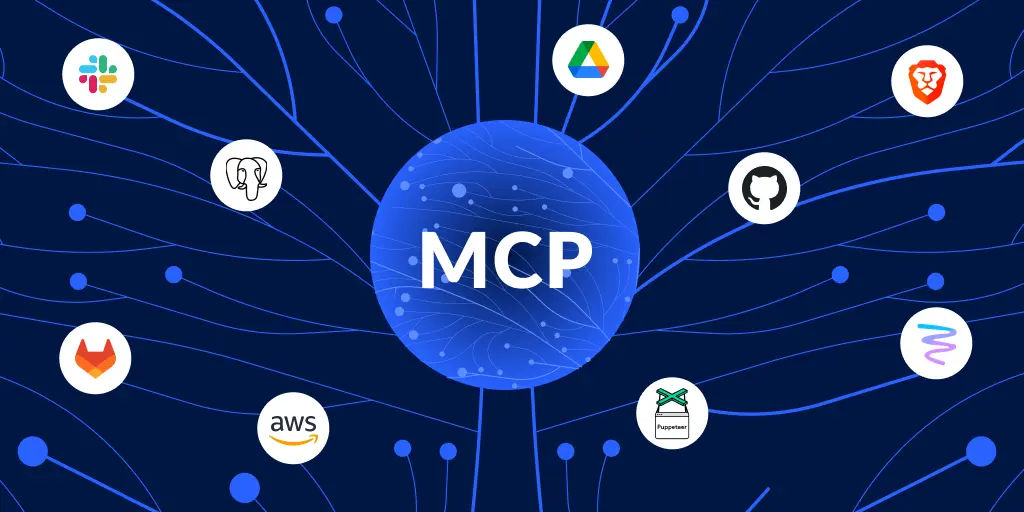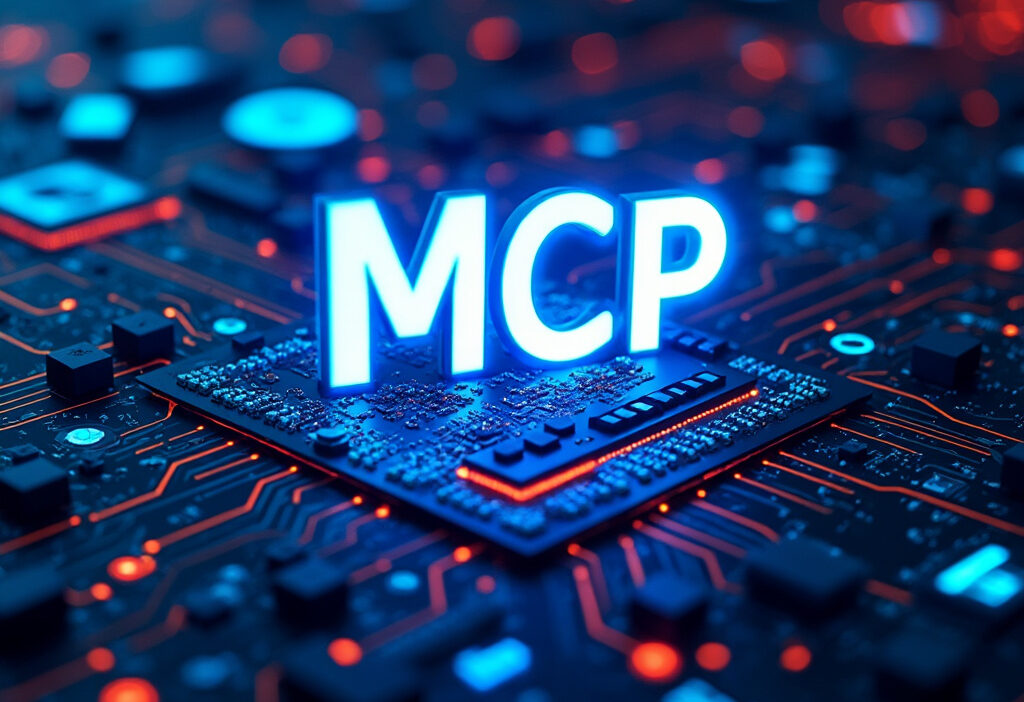What Is MCP, and Why Is Everyone – Suddenly!– Talking About It?
In the ever-evolving landscape of technology, medicine, and beyond, the acronym MCP has emerged as a buzzword. But what does it stand for, and why has it captured the public’s imagination? From groundbreaking tech innovations to critical medical applications, MCP spans a diverse range of fields. This article delves into its various interpretations, shedding light on its sudden prominence.
The Many Faces of MCP
MCP is an acronym that carries different meanings depending on the context, making it a term of growing relevance across multiple industries. In technology, MCP often refers to Microsoft Certified Professional, a certification validating expertise in Microsoft technologies, but it can also denote Master Control Program, a core component in early computing systems. In medicine, MCP stands for Metacarpophalangeal Joint, a critical anatomical structure in hand function, while in education, it might represent Multicultural Pedagogy, emphasizing inclusive teaching practices.
The sudden buzz around MCP stems from its expanding influence. In tech, the rise of cloud computing has renewed interest in Microsoft certifications, while retro computing enthusiasts revisit the legacy of the Master Control Program. In healthcare, advancements in orthopedic research have spotlighted MCP joint disorders, and in education, global diversity demands have made multicultural pedagogy indispensable.
Each interpretation of MCP reflects broader trends—digital transformation, medical innovation, and societal inclusivity—making it a term that resonates across disciplines. Its multifaceted nature ensures that, regardless of the field, MCP signifies progress, expertise, and adaptation to modern challenges.
What is MCP ?
In the realm of computing, MCP holds a pivotal role, primarily recognized as the Microsoft Certified Professional certification. This credential validates an individual’s expertise in Microsoft technologies, serving as a benchmark for IT professionals. It covers a wide range of skills, from cloud computing with Azure to software development in .NET, making it a sought-after qualification in the tech industry.
Beyond certifications, MCP also refers to the Master Control Program, an early operating system developed by Burroughs Corporation for mainframe computers. Though obsolete today, it laid foundational concepts for modern OS design, such as multitasking and resource management.
In contemporary software development, MCP principles influence modular programming and system architecture. Developers leverage these concepts to build scalable, efficient applications, particularly in cloud environments. The term also surfaces in niche areas like microservice communication protocols, where it denotes frameworks for inter-service data exchange.
The sudden buzz around MCP stems from its evolving relevance—bridging legacy systems with cutting-edge tech, while certifications like Microsoft’s keep professionals competitive in a rapidly changing digital landscape.
Medical Breakthroughs with MCP
In the medical field, MCP—often referring to Modified Citrus Pectin—has emerged as a groundbreaking compound with far-reaching implications. Derived from citrus fruit peels, this polysaccharide is gaining attention for its ability to bind to galectin-3, a protein linked to inflammation, fibrosis, and cancer metastasis. Researchers are exploring its potential to inhibit harmful cellular interactions, making it a promising candidate for cancer therapy and chronic disease management.
Beyond oncology, MCP plays a vital role in joint health. Its anti-inflammatory properties help reduce cartilage degradation, offering relief for arthritis sufferers. Recent studies highlight its ability to modulate immune responses, slowing degenerative processes in connective tissues.
In gastroenterology, MCP is used as a natural remedy for digestive issues, particularly heavy metal detoxification. Its chelating properties help remove toxins like lead and mercury without stripping essential minerals—a safer alternative to synthetic chelators.
Advancements in protein research have further solidified MCP’s significance. Scientists are leveraging its molecular structure to develop targeted drug delivery systems, enhancing precision medicine. As research progresses, MCP continues to redefine therapeutic possibilities, bridging gaps between natural remedies and cutting-edge medical science.
MCP in Science and Technology
In the realm of science and technology, MCP extends far beyond medicine and computing, playing a pivotal role in fields like physics and semiconductor technology. In physics, MCPs—or Microchannel Plates—are used as high-performance electron multipliers in particle detectors, enabling precise measurements in experiments ranging from quantum mechanics to astrophysics. Their ability to amplify weak signals makes them indispensable in devices like photomultipliers and mass spectrometers, where detecting single particles is critical.
Semiconductor manufacturing also leverages MCPs for their ultra-thin, conductive properties, enhancing the efficiency of microelectronics. Their nanostructured channels improve electron flow, reducing energy loss in next-gen chips. Meanwhile, in material science, MCP-based coatings are revolutionizing thermal management in high-power electronics, dissipating heat more effectively than traditional solutions.
Recent breakthroughs include MCP-integrated sensors for quantum computing, where their low-noise amplification aids in qubit readout. As industries push the limits of miniaturization and precision, MCPs are becoming a silent yet transformative force—bridging gaps between theoretical research and cutting-edge applications. Their versatility ensures they’ll remain at the forefront of technological innovation.
The Entertainment Angle
The entertainment world has long embraced MCP, not just as a technical concept but as a cultural icon. Its most famous depiction came in the 1982 sci-fi classic Tron, where the Master Control Program (MCP) was portrayed as a sentient, power-hungry AI—a villain that resonated with growing fears of unchecked technological dominance. This portrayal cemented MCP in pop culture, making it synonymous with artificial intelligence gone rogue. Beyond film, MCP has appeared in comic books, video games, and TV shows, often symbolizing the duality of technological progress: both awe-inspiring and perilous.
The cultural impact of MCP extends beyond fiction. It has shaped public perceptions of AI, influencing debates around ethics and autonomy in technology. Tron’s MCP, for instance, foreshadowed real-world concerns about centralized control in digital systems—a theme that remains relevant today. Meanwhile, in gaming, MCP-inspired antagonists continue to challenge players, reinforcing the trope of machines as both allies and adversaries. By embedding MCP in narratives, entertainment media has amplified its significance, transforming it from a niche technical term into a broader metaphor for power, control, and the human relationship with technology.
Educational Pathways Involving MCP
Educational institutions are increasingly recognizing the value of MCP—whether as a concept, a certification, or a specialized field—integrating it into curricula to prepare students for evolving technological and professional landscapes. In higher education, Master Control Program (MCP) principles are woven into computer science and engineering degrees, emphasizing system architecture, automation, and cybersecurity. Universities now offer dedicated courses on MCP-like frameworks, equipping students with skills to design and manage complex digital infrastructures.
At the secondary level, specialized high schools and STEM programs introduce MCP-related concepts through robotics clubs, coding bootcamps, and AI workshops. These initiatives foster early proficiency in system control and algorithmic thinking, mirroring the competencies demanded by industries explored in the next chapter.
Vocational and certification programs also leverage MCP’s relevance, offering accelerated training in network administration and cloud computing—fields where MCP’s principles are foundational. By embedding MCP into education, institutions bridge the gap between theoretical knowledge and real-world applications, shaping professionals capable of navigating the business and organizational challenges ahead. This alignment ensures graduates are not just technically adept but also attuned to MCP’s broader implications in sectors like healthcare and corporate identity.
MCP in Business and Organizations
In the business world, MCP has emerged as a critical framework, driving efficiency and innovation across industries. Its role extends beyond mere terminology, shaping corporate identity and operational strategies. Companies leverage MCP to streamline processes, enhance decision-making, and foster collaboration, making it a cornerstone of modern organizational success.
In healthcare, MCP plays a transformative role. Hospitals and clinics adopt it to optimize patient care, manage resources, and integrate cutting-edge technologies like AI-driven diagnostics. By aligning workflows with MCP principles, healthcare providers achieve higher accuracy and faster response times, ultimately improving outcomes.
Beyond healthcare, MCP serves as a symbol of corporate identity. Industries such as finance, manufacturing, and retail use it to differentiate themselves in competitive markets. For example, a tech firm might embed MCP into its branding to signal innovation, while a logistics company could highlight its adoption to emphasize reliability.
Key aspects of MCP in business include:
- Operational agility: Enabling rapid adaptation to market changes.
- Data-driven insights: Enhancing strategic planning through analytics.
- Employee empowerment: Fostering a culture of continuous improvement.
As organizations worldwide recognize its value, MCP continues to redefine how businesses operate and compete. Its multifaceted applications ensure it remains a focal point in corporate discourse.
Global Perspectives on MCP
MCP’s global footprint reveals striking variations in how it is perceived and applied across different regions, reflecting cultural, economic, and technological disparities. In North America and Europe, MCP is often tied to advanced corporate ecosystems, where it serves as a backbone for digital transformation and data-driven decision-making. Companies leverage it for supply chain optimization, customer analytics, and even AI integration, aligning with the region’s emphasis on innovation.
In contrast, Asia-Pacific adopts MCP with a stronger focus on scalability and rapid industrialization. Countries like China and India use it to streamline manufacturing processes and support burgeoning tech hubs, while Japan integrates MCP into precision-driven sectors like robotics. Meanwhile, Africa and Latin America are increasingly adopting MCP to bridge infrastructure gaps, particularly in healthcare and agriculture, where it aids in resource allocation and remote service delivery.
Cultural nuances also shape MCP’s adoption. In some Middle Eastern nations, MCP aligns with smart city initiatives, whereas in Scandinavia, its ethical deployment—prioritizing sustainability—stands out. These regional adaptations highlight MCP’s flexibility but also foreshadow debates, as its global spread raises questions about standardization and equitable access—topics that segue into the next chapter’s focus on challenges.
Challenges and Controversies
While MCP has gained widespread attention for its versatility, its rise hasn’t been without friction. Ethical concerns loom large, particularly in medical and biotech applications. For instance, modified citrus pectin (MCP) as a cancer therapy has sparked debate—some studies suggest it inhibits metastasis, but critics argue the evidence is inconclusive, raising questions about premature commercialization. Similarly, in tech, MCP (Multi-Chip Packaging) faces scrutiny over environmental impact due to e-waste from discarded chips and the energy-intensive manufacturing process.
Controversies also surround MCP’s role in data privacy. As a protocol for secure communications, some argue it creates a false sense of security, with vulnerabilities being exploited before patches are developed. Meanwhile, in agriculture, MCP (Microbial Community Products) faces backlash from organic purists who question its long-term ecological effects, despite claims of boosting crop yields.
The effectiveness debate extends to policy-making, where MCP (Multi-Stakeholder Collaboration Platforms) is praised for inclusivity but criticized for slow decision-making. These tensions highlight a broader challenge: balancing innovation with accountability. As MCP’s applications diversify, so do the stakes—making these controversies central to its future trajectory.
The Future of MCP
The future of MCP is poised to be as dynamic as its current interpretations, with advancements likely to reshape industries and redefine its applications. In technology, MCP (Multi-Chip Packaging) is expected to evolve alongside AI and quantum computing, enabling faster, more efficient processors that push the boundaries of Moore’s Law. Emerging 3D stacking techniques could revolutionize chip design, making devices smaller yet more powerful.
In medicine, MCP (Microbial Cell Products) holds promise for personalized therapies, with CRISPR and synthetic biology opening doors to engineered microbes that treat diseases at the genetic level. Researchers are exploring how these microbial systems could deliver targeted drugs or even repair tissues autonomously.
Meanwhile, environmental science might see MCP (Microbial Carbon Capture) scaled up to combat climate change, with genetically modified microbes absorbing CO2 more efficiently than traditional methods. However, ethical and regulatory hurdles—highlighted in previous discussions—will need addressing before widespread adoption.
Finally, new interpretations of MCP could emerge, driven by interdisciplinary innovation. Whether in blockchain, space tech, or bioengineering, MCP’s adaptability ensures it will remain a focal point of progress—and debate—in the years ahead.

Conclusions
From its roots in computing and medicine to its presence in entertainment and education, MCP proves to be a term of vast significance. Its sudden popularity underscores the interconnectedness of modern disciplines. As we’ve explored, whether it’s advancing technology or enhancing healthcare, MCP is more than just an acronym—it’s a symbol of innovation and progress.



